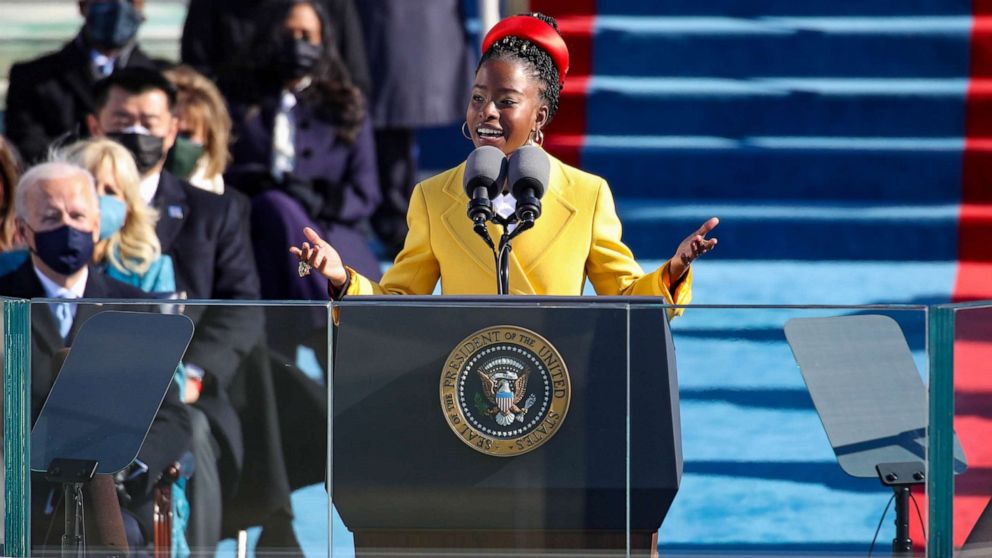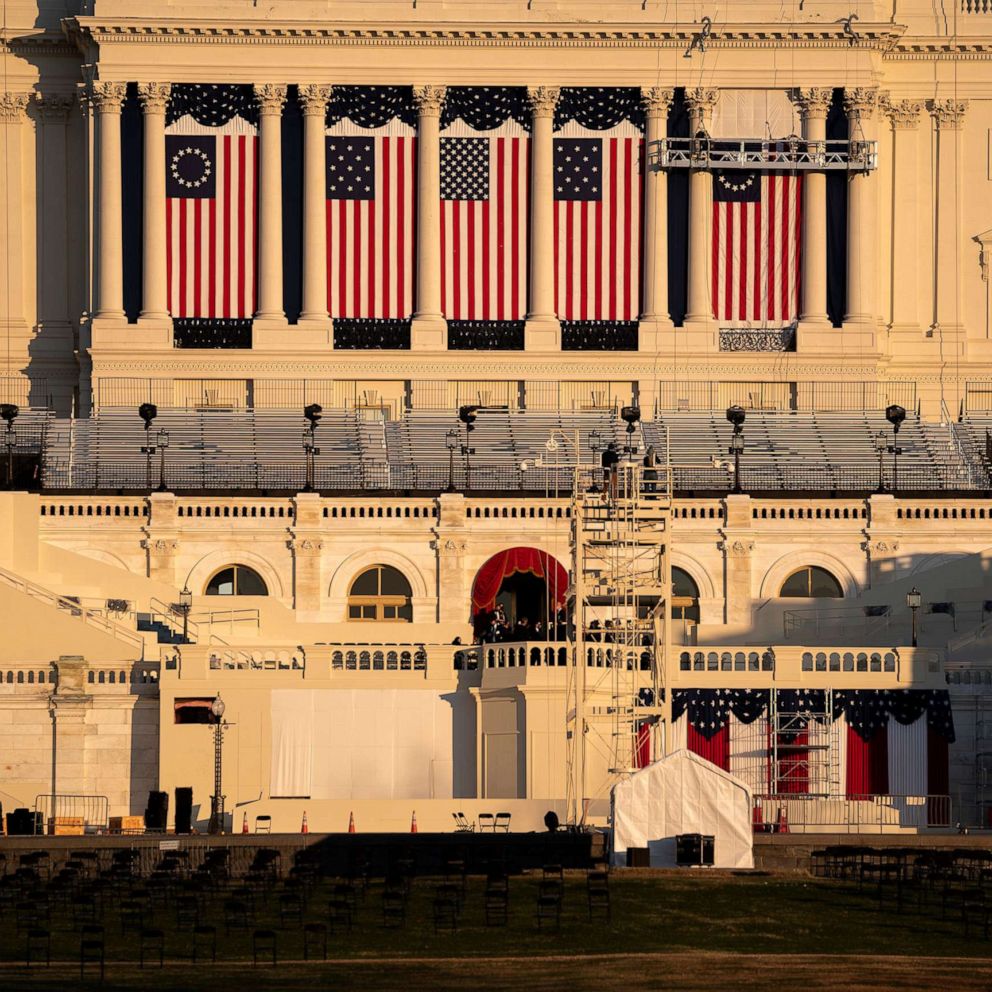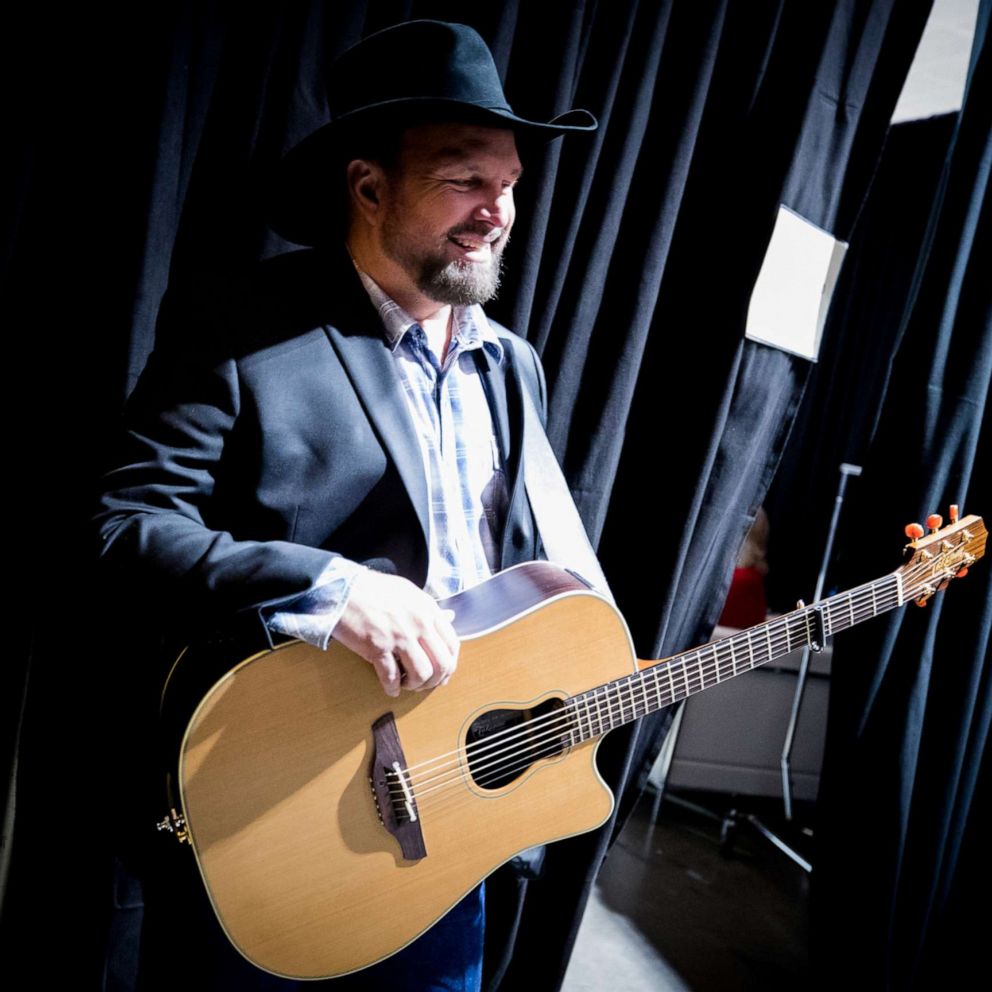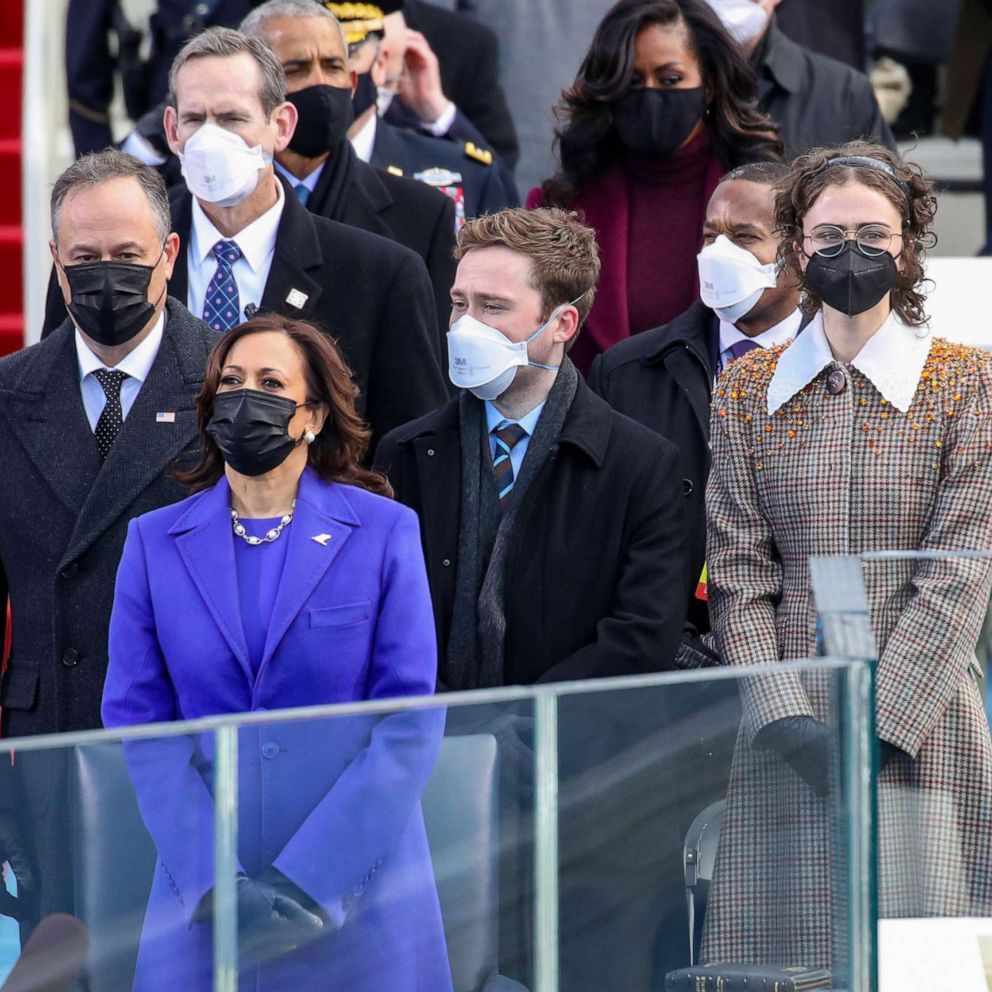22-year-old Amanda Gorman becomes youngest poet to read at inauguration
Amanda Gorman made history Wednesday as the youngest poet in recent history to read a poem at a presidential inauguration.
Gorman, 22, read her own poem at the inauguration of President Joe Biden and Vice President Kamala Harris.
The Los Angeles native told NPR she finished writing the poem, titled "The Hill We Climb," on the night of Jan. 6, hours after rioters took part in a siege on Capitol Hill.
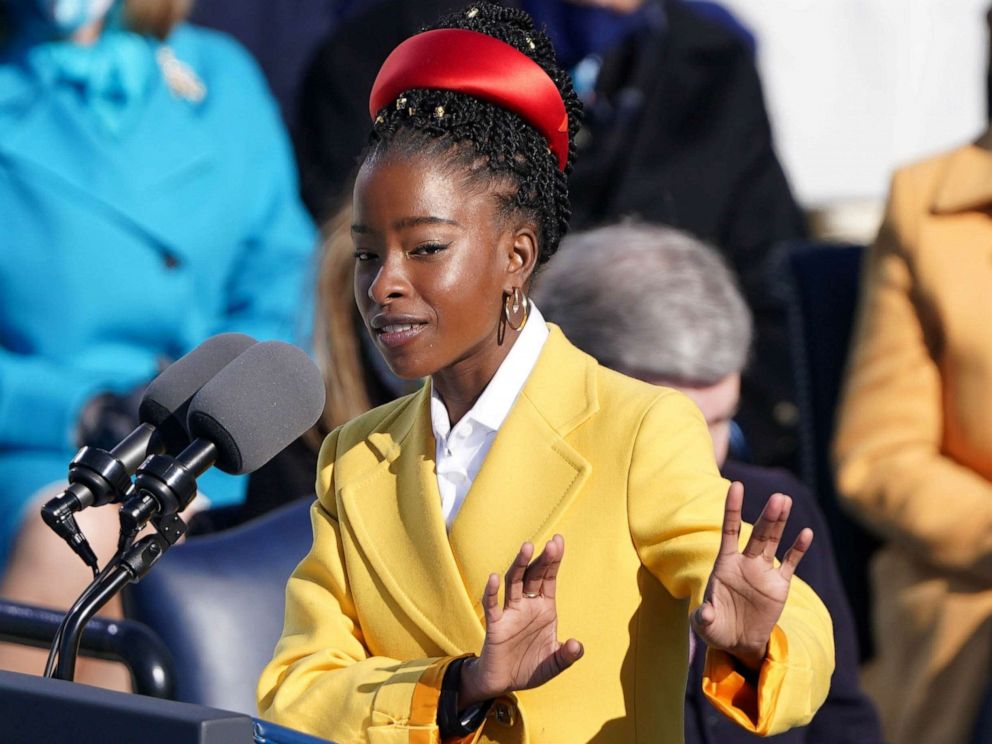
"I was like, 'Well, this is something we need to talk about,'" Gorman told NPR's Steve Inskeep ahead of the inauguration, adding it had been "really daunting to begin the poem" given how divided the country seemed after the 2020 election.
Gorman opened her poem Wednesday by saying, "We braved the belly of the beast."
"We've learned that quiet isn't always peace and the norms and notions of what just is, isn't always justice. And yet the dawn is hours before we knew it, somehow we do it, somehow we’ve weathered and witnessed a nation that isn't broken but simply unfinished," she said. "We, the successors of a country and a time, where a skinny black girl descended from slaves and raised by a single mother can dream of becoming president, only to find herself reciting for one."
"And yes, we are far from polished, far from pristine, but that doesn't mean we are striving to form a union that is perfect," she said. "We are striving to forge our union with purpose, to compose a country committed to all cultures, colors, characters and conditions of man."
"And so we lift our gazes not to what stands between us but what stands before us. We close the divide because we know to put our future first. We must first put our differences aside," Gorman said.
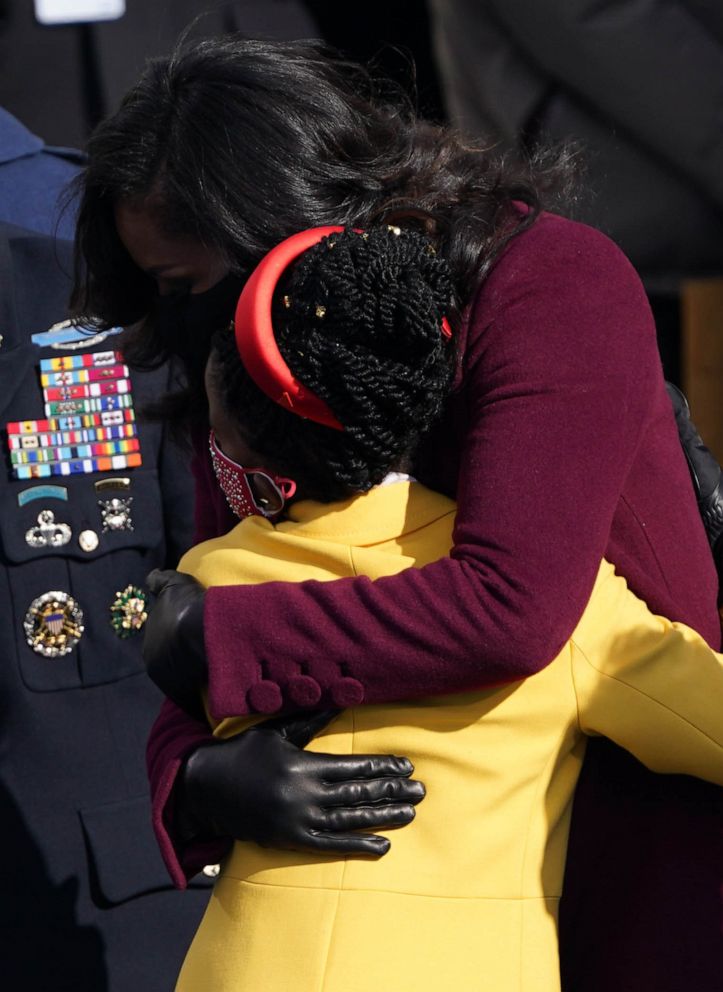
Gorman, who said she was not given specific instructions on what to write in her poem, follows in the footsteps of esteemed poets like Maya Angelou and Robert Frost in reading a poem at a presidential inauguration.
Gorman received praise for her poem from the likes of Lin Manuel Miranda, Barack Obama, Hillary Clinton and Oprah Winfrey, who tweeted, "Maya Angelou is cheering—and so am I."
Winfrey gifted Gorman the gold hoop earrings and birdcage ring she wore at the inauguration, according to Oprah magazine.
"For Oprah, this gesture continues her tradition of supporting poets ahead of their meaningful address," the magazine explained. "When Angelou was chosen to read a poem at Bill Clinton's 1993 inauguration, Oprah sent her a blue Chanel coat and a pair of gloves to wear for the occasion."
The Harvard graduate, who told the New York Times in 2017 that she plans to run for president in 2036, delivered her poem at a historic inauguration that saw Harris sworn in as the country's first woman vice president and first woman of color to serve in that position.
Gorman arrived on the presidential stage after being named the first Youth Poet Laureate of Los Angeles in 2014 and the country's first National Youth Poet Laureate three years later.
Like Biden, who has been public about having a stutter, Gorman has had to work to overcome a speech impediment.
She told NPR that because of her difficulty saying certain letters of the alphabet, she has to constantly "self-edit and self-police."
"I would be in the bathroom scribbling five minutes before trying to figure out if I could say 'earth' or if I can say 'girl' or if I can say 'poetry.' And you know, doing the best with the poem I could," she said, noting that other famous inauguration orators, like Angelou, also overcame struggles.
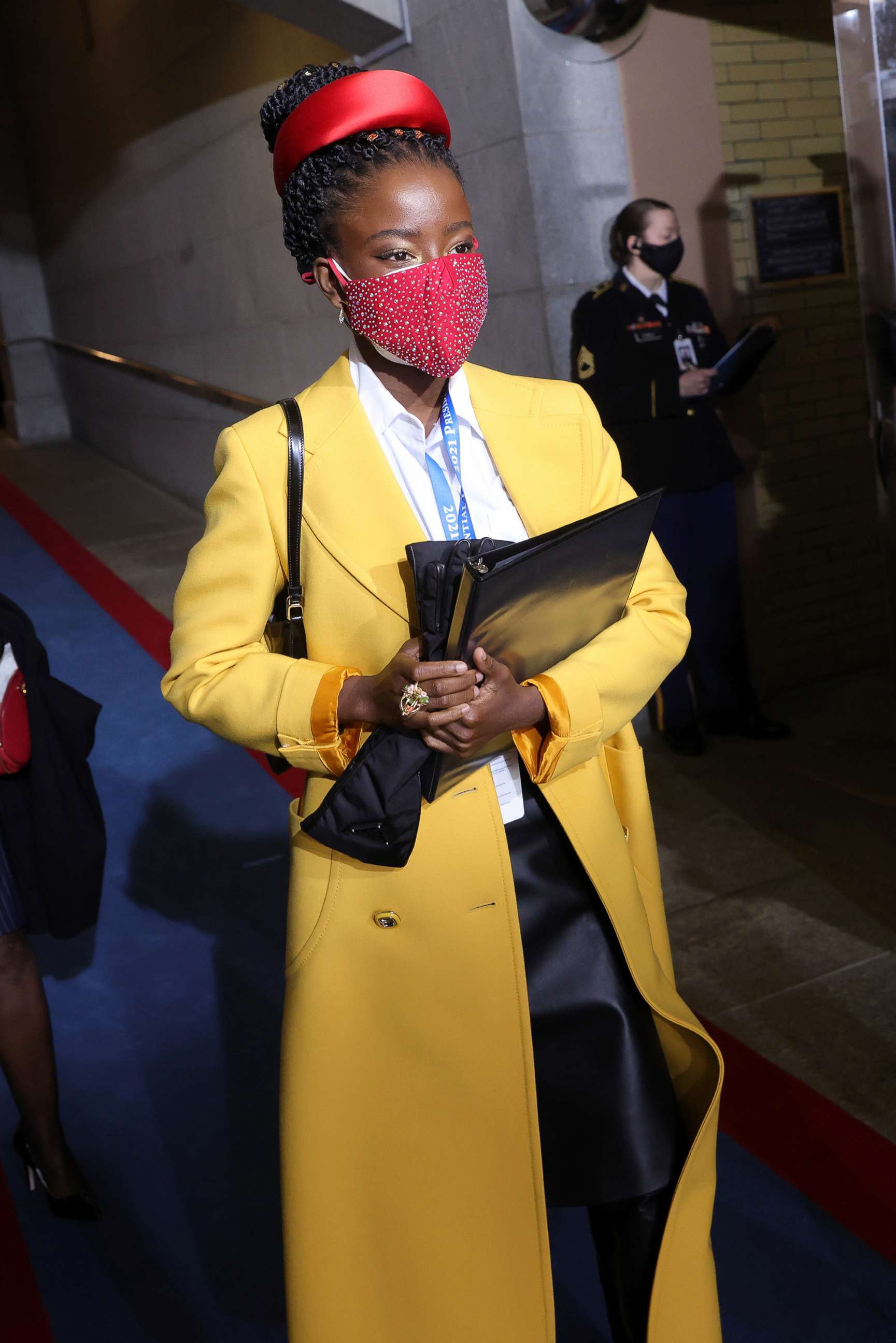
"I think there is a real history of orators who have had to struggle, a type of imposed voicelessness, you know, having that stage at inauguration," Gorman told NPR. "So it's really special for me."
Read Amanda Gorman's inaugural poem in full:
Mr. President, Dr. Biden, Madam Vice President, Mr. Emhoff, Americans and the world, when day comes, we ask ourselves where can we find light in this never-ending shade? The loss we carry, a sea we must wade. We braved the belly of the beast.
We've learned that quiet isn't always peace, and the norms and notions of what just is, isn't always justice. And yet the dawn is hours before we knew it, somehow we do it, somehow we’ve weathered and witnessed a nation that isn't broken but simply unfinished.
We, the successors of a country and a time, where a skinny Black girl descended from slaves and raised by a single mother can dream of becoming president, only to find herself reciting for one.
And yes, we are far from polished, far from pristine, but that doesn't mean we are striving to form a union that is perfect. We are striving to forge our union with purpose, to compose a country committed to all cultures, colors, characters and conditions of man. And so we lift our gazes not to what stands between us but what stands before us. We close the divide, because we know to put our future first, we must first put our differences aside.
We lay down our arms so we can reach out our arms to one another. We seek harm to none and harmony for all. Let the globe, if nothing else, say this is true, that even as we grieved, we grew. That even as we hurt, we hoped.
That even as we tired, we tried. That we’ll forever be tied together, victorious, not because we will never again know defeat, but because we will never again sow division.
Scripture tells us to envision that everyone shall sit under their own vine and fig tree, and no one shall make them afraid.
If we’re to live up to our own time, then victory won't lighten the blade, but in all the bridges we've made, that is the promise to glade, the hill we climb if only we dare, it's because being American is more than a pride we inherit. It's the past we stepped into and how we repair it.
We've seen a force that would shatter our nation rather than share it, would destroy our country if it meant delaying democracy.
And this effort very nearly succeeded. But while democracy can be periodically delayed, it can never be permanently defeated. In this truth, in this faith, we trust. For while we have our eyes on the future, history has its eyes on us.
This is the era of just redemption. We feared at its inception. We did not feel prepared to be the heirs of such a terrifying hour, but within it we found the power to author a new chapter, to offer hope and laughter to ourselves.
So, while once we asked, “how could we possibly prevail over catastrophe?”, now we assert, “how could catastrophe possibly prevail over us?” We will not march back to what was, but move to what shall be, a country that is bruised but whole, benevolent but bold, fierce and free. We will not be turned around or interrupted by intimidation.
Because we know our inaction and inertia will be the inheritance of the next generation. Our blunders become their burdens. But one thing is certain. If we merge mercy with might and might with right, then love becomes our legacy, and change, our children's birth right.
So let us leave behind a country better than one we were left with, every breath from my bronze-pounded chest, we will raise this wounded world into a wondrous one. We will rise through the gold-limbed hills of the west, we will rise from the windswept northeast where our forefathers first realized revolution. We will rise from the lake-rimmed cities of the Midwestern states. We will rise from the sun-baked South.
We will rebuild, reconcile, and recover, in every known nook of our nation, in every corner called our country, our people diverse and beautiful, will emerge battered and beautiful. When day comes, we step out of the shade, aflame and unafraid.
The new dawn blooms as we free it for there is always light if only we're brave enough to see it, if only we're brave enough to be it.
